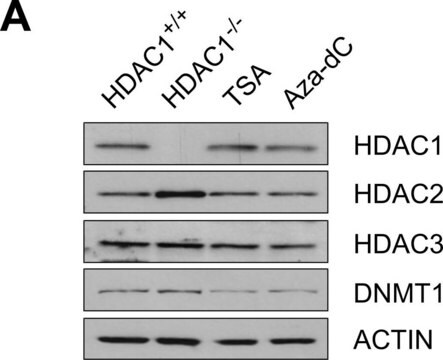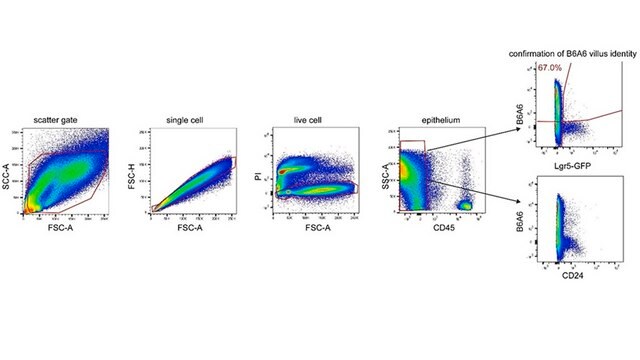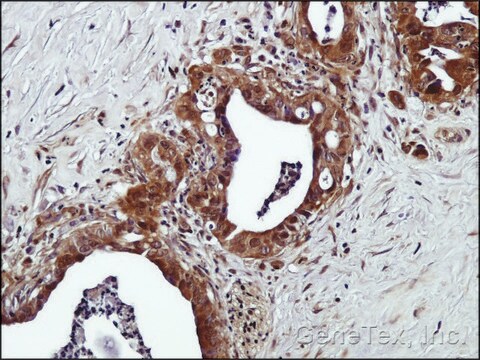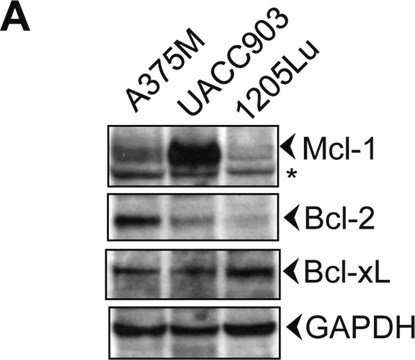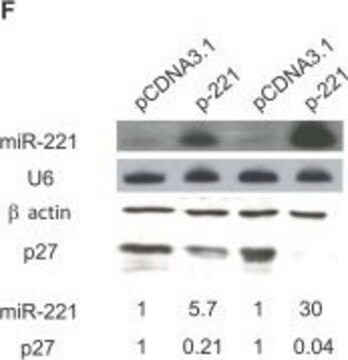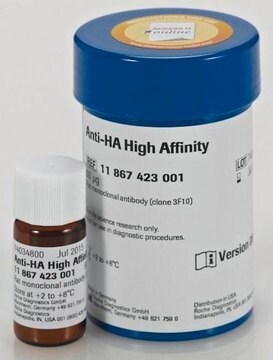SAB4501490
Anti-GPR120 antibody produced in rabbit
affinity isolated antibody
Sinónimos:
G-protein coupled receptor 120, G-protein coupled receptor 129, G-protein coupled receptor GT01, G-protein coupled receptor PGR4, GPR120
About This Item
Productos recomendados
biological source
rabbit
conjugate
unconjugated
antibody form
affinity isolated antibody
antibody product type
primary antibodies
clone
polyclonal
form
buffered aqueous solution
mol wt
antigen 42 kDa
species reactivity
human, mouse, rat
concentration
~1 mg/mL
technique(s)
ELISA: 1:1000
immunofluorescence: 1:100-1:500
western blot: 1:500-1:1000
NCBI accession no.
shipped in
wet ice
storage temp.
−20°C
target post-translational modification
unmodified
Gene Information
human ... GPR120(338557)
General description
Immunogen
Immunogen Range: 221-270
Application
Immunohistochemistry (1 paper)
Biochem/physiol Actions
Features and Benefits
Physical form
Disclaimer
¿No encuentra el producto adecuado?
Pruebe nuestro Herramienta de selección de productos.
Storage Class
10 - Combustible liquids
wgk_germany
nwg
flash_point_f
Not applicable
flash_point_c
Not applicable
Elija entre una de las versiones más recientes:
Certificados de análisis (COA)
¿No ve la versión correcta?
Si necesita una versión concreta, puede buscar un certificado específico por el número de lote.
¿Ya tiene este producto?
Encuentre la documentación para los productos que ha comprado recientemente en la Biblioteca de documentos.
Nuestro equipo de científicos tiene experiencia en todas las áreas de investigación: Ciencias de la vida, Ciencia de los materiales, Síntesis química, Cromatografía, Analítica y muchas otras.
Póngase en contacto con el Servicio técnico